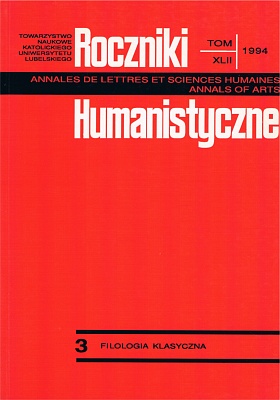St Augustine's Critical Examination of Cybele's Worship in De Civitate Dei
Abstract
This article is an analysis of a critical examination of Cybele's worship in De Civitate Dei written by St Augustine. A bishop of Hippo gave Cybele his close attention, because on the background of other gods' cults, her cult appears to be an especially destructive demonolatry. ”Magna deorum Mater”, a title of hers is used to hint readers at some kind of sweeping generalization about a pagan religion. Cybele's worship clashed with generally accepted ethical rules. Augustine exposes it to raise an issue of holiness in the pagan religion. It appears that the pagans had a higher morality than the ethnical religion required it from worshippers. To illustrate a destroying power of Cybele St Augustine reminds of monstrous sacrifices which were made by her priests − Galli. Changes that had taken place in a physiological and psychological sphere of human nature were a result of an active participation in Cybele's worship. A designation which Augustine applies to Galli: ”homines infeliciter enervati atque corrupti” is a synthesis of these changes forced by ethnical religion.
Copyright (c) 1994 Roczniki Humanistyczne

This work is licensed under a Creative Commons Attribution-NonCommercial-NoDerivatives 4.0 International License.





